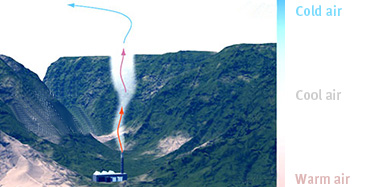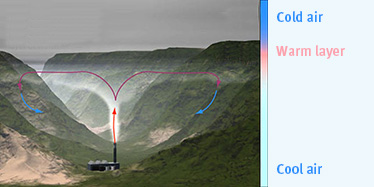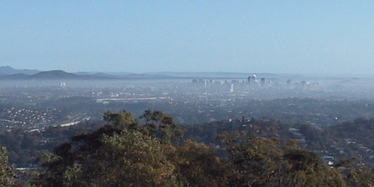Inversions
In normal conditions, air temperature decreases with altitude. This allows emissions that are normally warmer than the surrounding air to rise until they reach equilibrium with the atmosphere, where they mix and disperse effectively.
This normal thermal gradient is illustrated in the diagram below.

Normal thermal gradient
Under certain meteorological conditions, the air is very stable and a layer of cooler, dense air lies near the ground with a layer of warmer air above. This condition, called a temperature or thermal inversion, prevents emissions from dispersing and pollutants build up under the inversion.
The diagram below shows a thermal inversion where the sides of the valley contain the cool air near the ground.

Temperature inversion
In Brisbane, inversions generally occur in winter on cool, clear nights when the earth's surface loses heat quickly. The photograph below shows a real example
